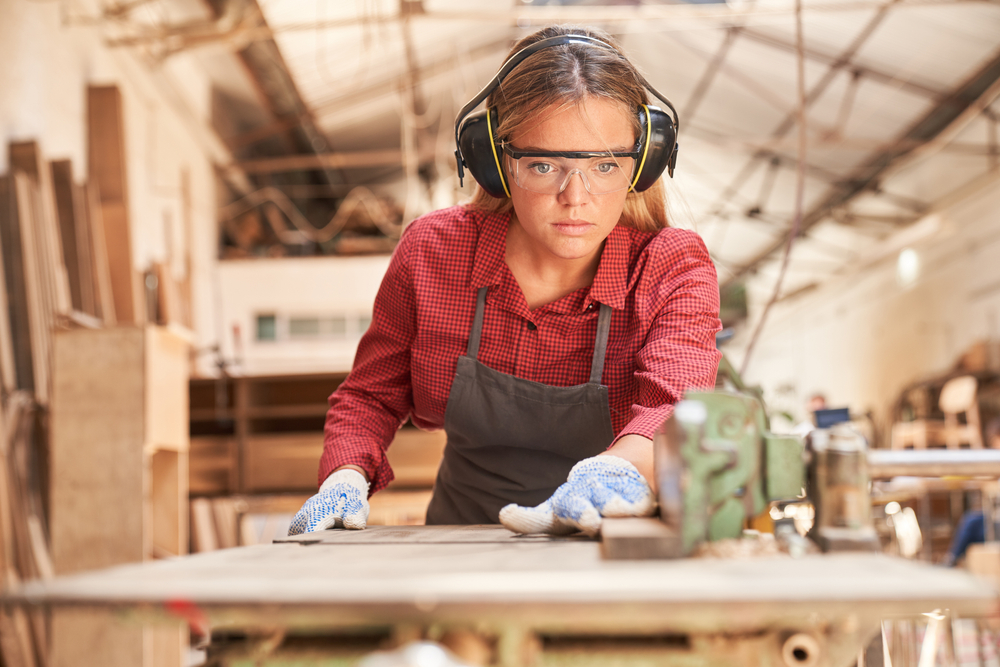
Whether you’re attending concerts, at work, or doing some yard work, hearing protection is essential in keeping your ears safe from damaging noise levels. However, you could be left exposed to possible risks if any one of a number of possible factors interferes with your hearing protection’s effectiveness. In order to understand and effectively maximize the benefits of your ear protection, it’s crucial to understand these issues.
Common reasons why hearing protection falters
Even when you observe best practices, unexpected challenges can arise. You steer clear of overly loud settings as much as possible, use earplugs at concerts, and vigilantly use earmuffs at work. Yet, certain variables can still disrupt your hearing protection’s efficiency. Luckily, you can ensure the protection of your hearing by becoming aware of these common pitfalls and making educated adjustments.
1. Specific circumstances call for specific types of hearing protection
The effectiveness of hearing protection can be reduced by choosing the wrong type for the given situation.
Generally, hearing protection falls into two main categories:
- Earplugs: Small, flexible inserts that fit snugly inside the ear canal.
- Earmuffs: Bigger, headphone-like device that goes over the entire ear.
There is an optimal type for each situation:
- Earmuffs are better for settings with periodic noise, such as a construction site where machinery starts and stops constantly.
- Locations with a constant noise threshold, including a factory floor or the cabin of an airliner, are the best times to use earplugs.
Earmuffs are easier to handle when there is a need to frequently put on and remove your hearing protection. Disposable earplugs, in contrast, can leave you susceptible to hearing damage because they can be easily misplaced. The first step towards successfully protecting your hearing is to choose the correct type of hearing protection.
2. Personal anatomy effects fit and effectiveness
Everybody’s ears are unique, which means not all hearing protection devices will fit everybody equally well. Basic earplugs and earmuffs are often designed with average dimensions in mind, but your ear anatomy might require a more customized solution.
- Smaller ear canals: The noise-blocking capability of standard-sized earplugs might not be effective if smaller ear canals impede the formation of a sufficient seal.
- Larger ear structures: Bigger ears can make earmuffs uncomfortable, causing gaps in the seal that allow noise to penetrate.
If your hearing protection doesn’t fit properly, you could become discouraged and choose to quit using them altogether which can imperil your hearing. Consider opting for custom-fitted earplugs or professionally fitted earmuffs if you spend a great deal of time in loud settings. These tailored solutions provide maximum comfort and effectiveness, ensuring you stay protected in any scenario.
3. Ignoring regular maintenance and replacement
Like any piece of gear, hearing protection devices require upkeep to remain effective. Wear and tear, improper cleaning, and neglecting replacement schedules can all jeopardize their ability to protect your ears.
The following are a number of tips on how to maintain hearing protection:
- Check for Damage: Inspect the elastic band on earmuffs frequently. Their ability to effectively block noise can be compromised if the elastic band is loose or stretched.
- Clean Properly: Earplugs and earmuffs are exposed to earwax and other debris, which can build up over time. Wash them regularly using manufacturer-recommended methods to ensure cleanliness without damaging the material.
- Replace Cushions: The flexibility of earmuff cushions can decrease over time. Replace them when necessary to maintain a proper seal.
Neglecting these basic maintenance tasks can leave your hearing protection less effective or even unusable. Routine upkeep is essential to extend their lifespan and ensure reliable performance.
What is the role of a hearing specialist?
If you’re unsure whether your hearing protection is getting the job done, schedule an evaluation appointment with us. We can check your current devices, recommend alternatives, and even offer custom solutions tailored to your specific needs.
Safeguarding your hearing is a lifelong commitment, and it’s worth the effort to ensure you’re using the best tools for the job. By addressing these common challenges, you can confidently protect your ears from harmful noise and preserve your hearing for years to come.